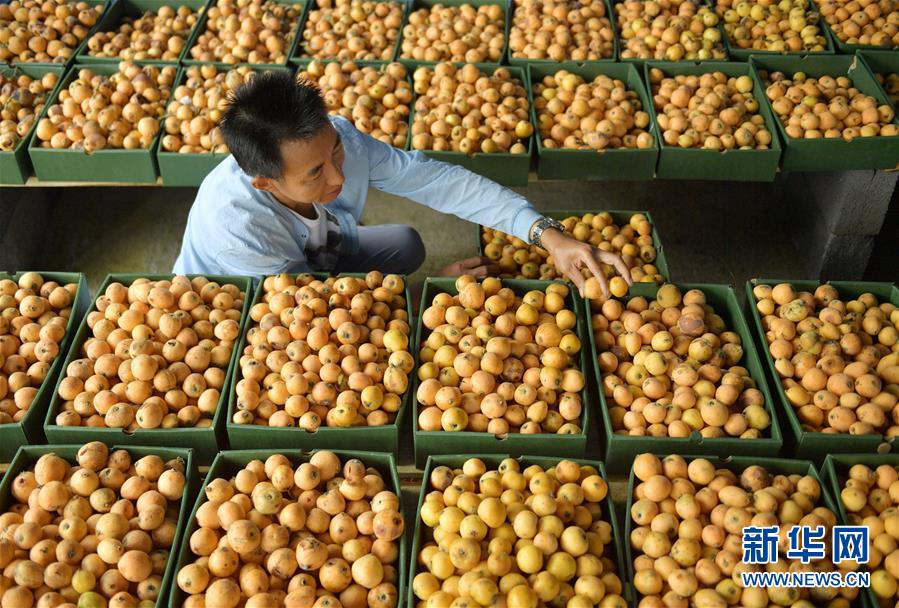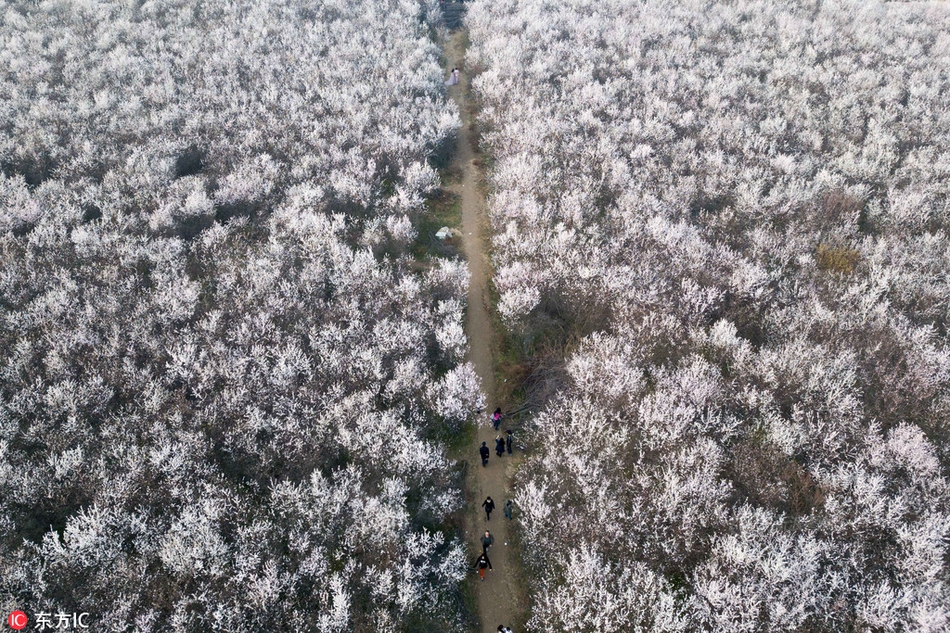中央媒体走基层|《中国日报》Yunnan sprouting into nation's 'vegetable basket'



Yunnan sprouting into nation's 'vegetable basket'
Poverty alleviation model expanded to enrich one of China's most fertile provinces
Long known for its breathtaking landscapes and ethnic diversity, Southwest China's Yunnan province is emerging as a national leader in specialty agriculture, transforming its once-impoverished rural regions into engines of economic renewal.
From sweet apples in Zhaotong to traditional cured meats in Xuanwei and leafy vegetables in Luliang, the highlands are cultivating not only crops, but also opportunities for the 88 counties in the province that have been lifted out of poverty.

Farmers pick apples at a production base of Zhaotong Chaoyue Agriculture in Zhao tong, Yunnan province. XU JING/FOR CHINA DAILY
Fruitful harvest
Perched on the Yunnan-Guizhou Plateau and located in the heartland of the Wumeng Mountains in the northeast of the province, Zhaotong was once a city with the largest impoverished population in China.
Now, it is Southwest China's largest producer of apples thanks to its low latitude, high elevation, generous sunshine and dramatic daily temperature swings. These ideal growing conditions have made Zhaotong's apples sweet, crisp and nationally recognized.
With nearly 66,700 hectares under cultivation, Zhaotong harvested 1.3 million metric tons of apples last year, generating a revenue of 15 billion yuan ($2.07 billion). The apple industry has directly benefited 138,000 households, touching the lives of over half a million residents, according to local officials.

Two farmers divide apples of various sizes into different categories at an orchard in Zhaotong in September. CHEN XINBO/XINHUA
In April of last year, apples from Zhaotong made headlines when they were included in the fresh food supply aboard the Shenzhou XVIII spacecraft.
A major individual orchard in Zhaotong's Zhaoyang district covers 6,670 hectares with 118 apple varieties, one of the largest of its kind. Yang Longjiang, director of the district's industry development center, said advanced agricultural techniques learned from New Zealand and elsewhere are yielding world-class results.
"The orchard applies dwarf root-stocks that yield fruit faster and uses an integrated drip irrigation system that can precisely deliver water and fertilizer, conserving precious resources," Yang said.
"Combined with monthly wages from working at the base, we can earn 80,000 yuan a year and live a better life," said Ding Kaiwen, a former tobacco farmer who works in the orchards with his wife. Their family also receives an annual land lease payment of 14,400 yuan.
The district's agricultural officials report that formerly impoverished households have seen average income increases of 4,800 yuan thanks to the apple boom.
Branding has also played a crucial role in the success of the local apple industry. The Zhaoyang Red, one of the region's signature apple brands, has earned 93 green food and multiple organic certifications, paving the way for exports to the United Arab Emirates, Thailand and beyond.
Premium supermarket chains such as Sam's Club and Freshippo stock Zhaotong apples, selling at 8 to 14 yuan per kilogram. Orchard tourism and fruit-picking festivals have also emerged to breathe new life into local economies.
High-tech ham
Xuanwei ham, a dry-cured specialty with a legacy dating back centuries, is another Yunnan food specialty that has found its place on the dinner tables of Chinese consumers. It sits alongside Italy's Parma ham and Spain's Iberico ham. In 2023, the pig farming and ham industry in Xuanwei generated over 18.5 billion yuan, producing nearly 70,000 tons of ham and lifting thousands of households out of poverty.

Cured meats are air-dried at a production base of local manufacturer Lap-Jon Ham in Xuanwei, Yunnan province. [Photo provided to CHINA DAILY]
Zhou Jianmei, quality control manager at leading brand Lap-Jon Ham, recalls the moment they realized tradition alone wouldn't be enough. "We knew the quality of our pigs was top-tier, but our production chain lagged behind Europe. So we went there to learn."
Inspired by European models, Lap-Jon Ham invested 360 million yuan into advanced facilities, importing Italian fermentation systems and automating the aging process to allow year-round production.
A modern factory capable of producing 3,200 tons of premium ham annually has been built, alongside salami and ham-filled pastries. Last year, the company reported an output value of 478 million yuan and created over 600 local jobs.
"We learned from the refined, standardized production processes abroad and adapted them to the unique characteristics of Xuanwei ham," Zhou said.
According to government data, over two-thirds of Xuanwei's 330,000 rural households are involved in pig farming. Their average incomes rose by 28,100 yuan in 2023, while 36,000 families previously living in poverty saw an average annual increase of 4,300 yuan.
Six "ham manors" in the city have further boosted income for 2,800 households and created more than 500 jobs, with average monthly wages hitting 4,500 yuan.
Zhou said the primary challenge now is popularization. While beloved in parts of southern China where cured meat has long been a traditional delicacy, Xuanwei ham remains unfamiliar in the country's north.
"When you mention 'ham' in the north, many people still think of processed sausage," she said, adding that better awareness among Chinese consumers in the future is expected to expand the market.
Leafy ambitions
The agricultural reinvention of Yunnan extends to the vast, fertile plains of Luliang county in Qujing, the largest flatland on the Yunnan-Guizhou Plateau.

A farmer harvests Chinese broccoli at a plantation in Luliang, Yunnan province, in January last year. WANG YONG/FOR CHINA DAILY
The unique geography and climate of the county in the east of the province have made it an agricultural powerhouse, and the thriving vegetable industry is feeding cities across China and reaching tables as far away as Dubai.
With 6,000 hectares of cultivated land yielding 2.45 million tons of vegetables in 2023, Luliang generated 7 billion yuan, nearly half the county's total agricultural output.
The region has an average annual temperature of 15.2 C, a frost-free period of 335 days, fertile soil and abundant water resources, making year-round production of vegetables possible.
"Thanks to these favorable natural conditions, we can grow a wide variety of fresh, eco-friendly vegetables all year round," said Zhang Raofang, deputy director of Luliang's agriculture and rural affairs bureau.
Italian lettuce, romaine, napa cabbage and Shanghai bok choy are among the stars of the leafy industry. About 93 percent of its harvest is shipped to markets from Beijing to Dubai, Zhang said.
Advanced infrastructure has contributed to the success of the industry. Home to Southwest China's largest cold-chain logistics park, the county dispatches 10,000 tons of vegetables daily, serving the Guangdong-Hong Kong-Macao Greater Bay Area and elsewhere. In 2023, its import-export vegetable trade reached $5.16 million, a 237 percent year-on-year increase.
"The lettuce grown here is thick, crisp and of excellent quality," said Zhang Zixiong, chairman of Yunnan Yuanheng Agricultural Development Corp. His company manages 180 hectares and works with local farmers on another 1,333 hectares.

Farmers reap seasonal vegetables in a field in Luliang in May. WANG YONG/XINHUA
The company recently expanded its export markets to Southeast Asia and the Middle East and has hired young college graduates majoring in foreign languages to help manage its business overseas.
Huang Hongdong, a major vegetable producer in the county, cultivates 6.67 hectares of Chinese arrowhead (Sagittaria sagittifolia), an aquatic tuber known as cigu in Chinese. "Half of our products now go to Malaysia. They really value the taste and quality," Huang said.
The vegetable industry employs 210,000 people in Luliang, from planting and processing to packaging and transport, boosting average household incomes by over 28,000 yuan a year, according to Zhang from the agriculture bureau.
As demand for safe, high-quality vegetables grows, Luliang is playing a greater role in both China's national "vegetable basket" and the global food supply chain, he added.
This year marks the final stage of a five-year transition period aimed at consolidating the gains made in poverty alleviation and ensuring a seamless shift toward rural vitalization.
By cultivating high-quality agricultural specialties and expanding access to broader markets, residents in some of Yunnan's formerly poor regions have not only emerged from poverty but are embracing sustainable opportunities for long-term improvement in their lives.
来源:中国日报


(责任编辑:综合)
-
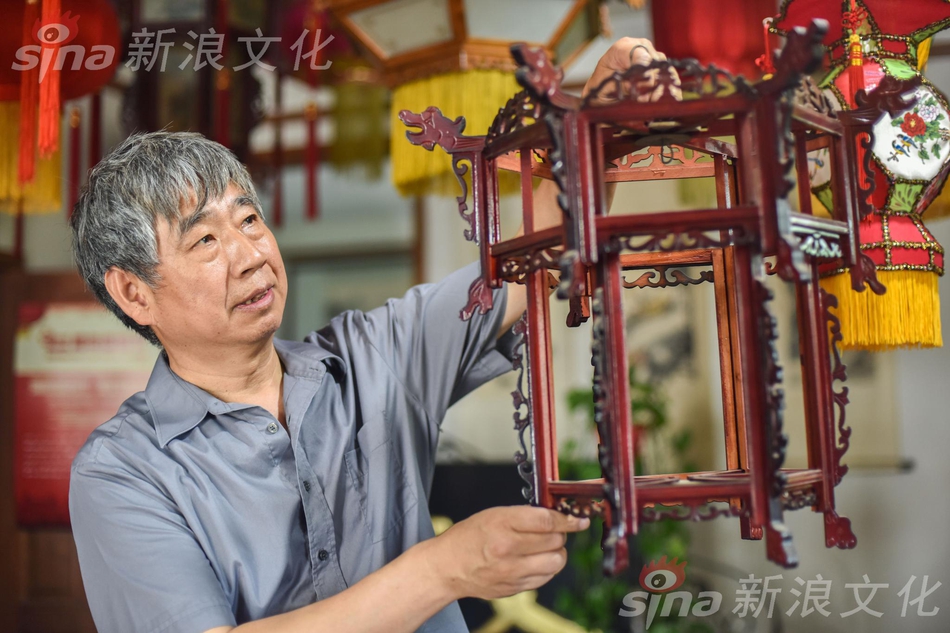 電動車爭霸,中國巨頭參戰。川普都要卸任了,此時彈劾他有什麼差?很有差!您的閱讀篇數已達上限立刻訂閱全閱讀,即可享全站不限篇數閱讀
...[详细]
電動車爭霸,中國巨頭參戰。川普都要卸任了,此時彈劾他有什麼差?很有差!您的閱讀篇數已達上限立刻訂閱全閱讀,即可享全站不限篇數閱讀
...[详细]
-
汉阴组织干部下沉一线排忧解难 办好“关键小事” 托起“民生大事”
 “是信号源没调好,所以电视调不出来频道。您一般看些什么?我给您调好。”汉阴县观音河镇干部陈曦一边与观音河村陈大爷拉家常,一边调整陈大爷家的电视信号。在观音河镇,每周一、三、五,镇干部常态化开展入户走访
...[详细]
“是信号源没调好,所以电视调不出来频道。您一般看些什么?我给您调好。”汉阴县观音河镇干部陈曦一边与观音河村陈大爷拉家常,一边调整陈大爷家的电视信号。在观音河镇,每周一、三、五,镇干部常态化开展入户走访
...[详细]
-
 无人驾驶载人eVTOL缓缓升起,无人巴士扫码即乘,无人售卖车招手即停……在安徽合肥骆岗公园,这样的“超级场景”正逐渐融入市民的日常生活。水陆空全空间无人体系的智能化装备如何高效联通,服务我们的美好生活
...[详细]
无人驾驶载人eVTOL缓缓升起,无人巴士扫码即乘,无人售卖车招手即停……在安徽合肥骆岗公园,这样的“超级场景”正逐渐融入市民的日常生活。水陆空全空间无人体系的智能化装备如何高效联通,服务我们的美好生活
...[详细]
-
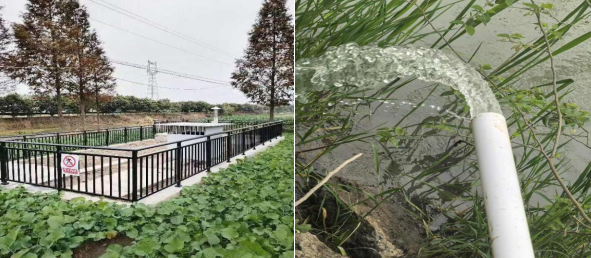 生态赋能 模式创新潜江绘就农村粪污治理绿色答卷潜江新闻网讯潜江市融媒体中心记者高慧 通讯员 黄磊 李兵兵)“治污如理丝,解结先寻头”,农村粪污治理既是民生痛点,亦是生态难点。近年来,潜江市以“靶向施治
...[详细]
生态赋能 模式创新潜江绘就农村粪污治理绿色答卷潜江新闻网讯潜江市融媒体中心记者高慧 通讯员 黄磊 李兵兵)“治污如理丝,解结先寻头”,农村粪污治理既是民生痛点,亦是生态难点。近年来,潜江市以“靶向施治
...[详细]
-
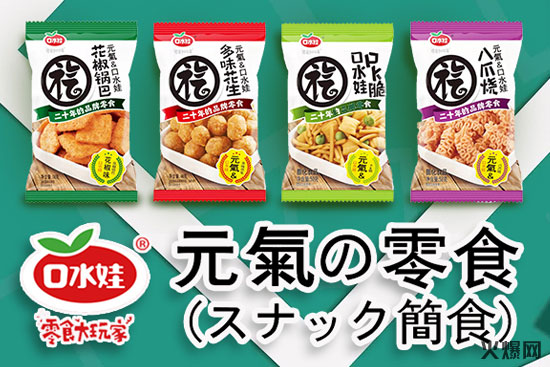 发布者:小宁 浏览量:6666发布时间:2022/4/14 15:50:27 在新型的消费模式下,人们的消费场景更加多样化,产品丰富度不断提升,传统的零食行业不断进阶升级,使
...[详细]
发布者:小宁 浏览量:6666发布时间:2022/4/14 15:50:27 在新型的消费模式下,人们的消费场景更加多样化,产品丰富度不断提升,传统的零食行业不断进阶升级,使
...[详细]
-
阿娇被曝为小鲜肉知三当三!多段恋情惨淡收场,43岁依然渴望爱情【两性&情感】风尚中国网
没想到43岁的阿娇在感情路上又“栽跟头”了。近日,有媒体爆料顶级女星知三当三,没想到最后爆出的是阿娇。这次被曝和阿娇有关系的是一个24岁的年轻男星余衍隆,这个看似十八线不知名小男星其实一点也不简单。余 ...[详细]
-
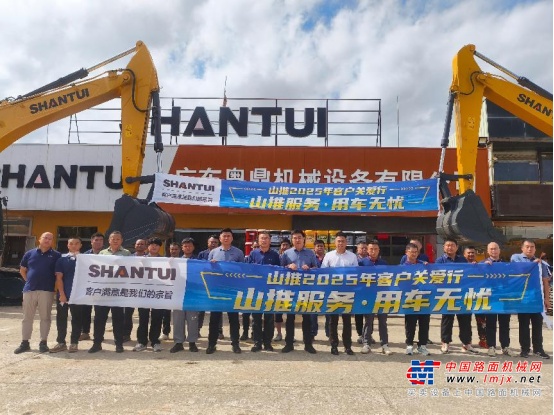 为了更贴近用户、提升服务温度,近日,2025年“山推服务·用车无忧”客户关爱行广东站全面启动。▌此次行动由12名服务骨干与10台专业服务车辆组成,奔赴惠州、河源、
...[详细]
为了更贴近用户、提升服务温度,近日,2025年“山推服务·用车无忧”客户关爱行广东站全面启动。▌此次行动由12名服务骨干与10台专业服务车辆组成,奔赴惠州、河源、
...[详细]
-
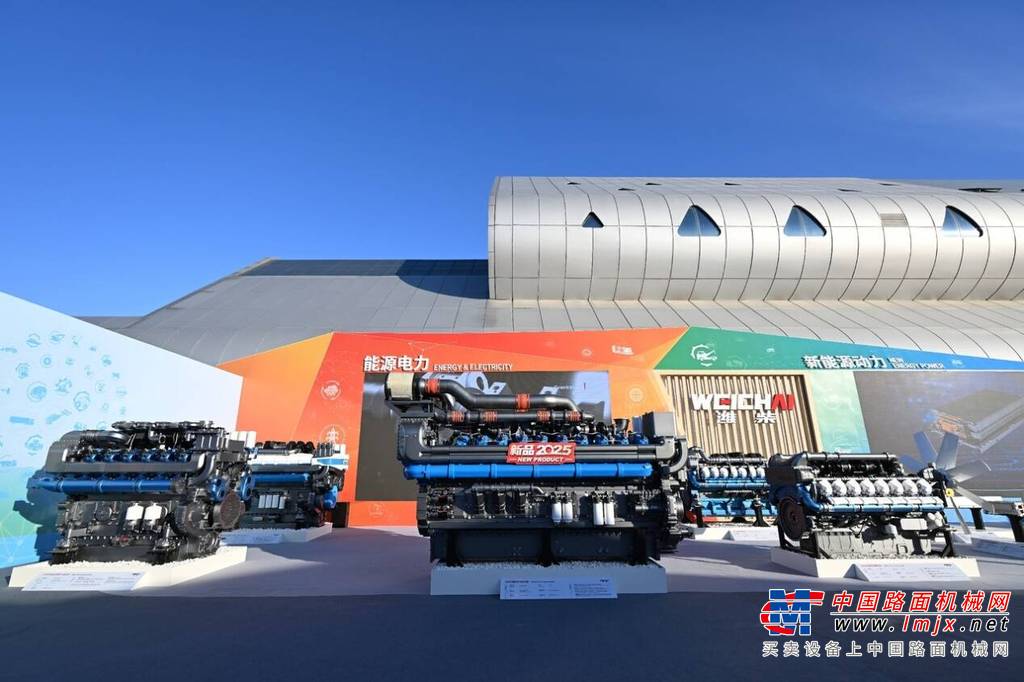 149.7亿元——这是山东重工集团2025年上半年交出的利润总额答卷,同比增长6.9%,不仅领跑装备制造全行业,更稳居山东省属企业第一位。在国际市场需求下滑、国内竞争白热化的双
...[详细]
149.7亿元——这是山东重工集团2025年上半年交出的利润总额答卷,同比增长6.9%,不仅领跑装备制造全行业,更稳居山东省属企业第一位。在国际市场需求下滑、国内竞争白热化的双
...[详细]
-
 广东红树林保护再加强,2026年底前实现高水平保护_南方+_南方plus近日,《广东省林业局加强红树林保护工作方案》以下简称《方案》)正式印发。方案明确提出,2026年底前广东基本形成可覆盖红树林重点
...[详细]
广东红树林保护再加强,2026年底前实现高水平保护_南方+_南方plus近日,《广东省林业局加强红树林保护工作方案》以下简称《方案》)正式印发。方案明确提出,2026年底前广东基本形成可覆盖红树林重点
...[详细]
-
 新华社合肥7月19日电记者水金辰)记者从安徽农业大学获悉,该校王晓波教授团队联合中国农业科学院作物科学研究所邱丽娟、李英慧研究员团队,解析了关键基因对大豆种子油脂和蛋白比例油蛋比)的调控机制,为高油或
...[详细]
新华社合肥7月19日电记者水金辰)记者从安徽农业大学获悉,该校王晓波教授团队联合中国农业科学院作物科学研究所邱丽娟、李英慧研究员团队,解析了关键基因对大豆种子油脂和蛋白比例油蛋比)的调控机制,为高油或
...[详细]

 晶钢玻璃门板材质优缺点 钢化玻璃橱柜门的优缺点,行业资讯
晶钢玻璃门板材质优缺点 钢化玻璃橱柜门的优缺点,行业资讯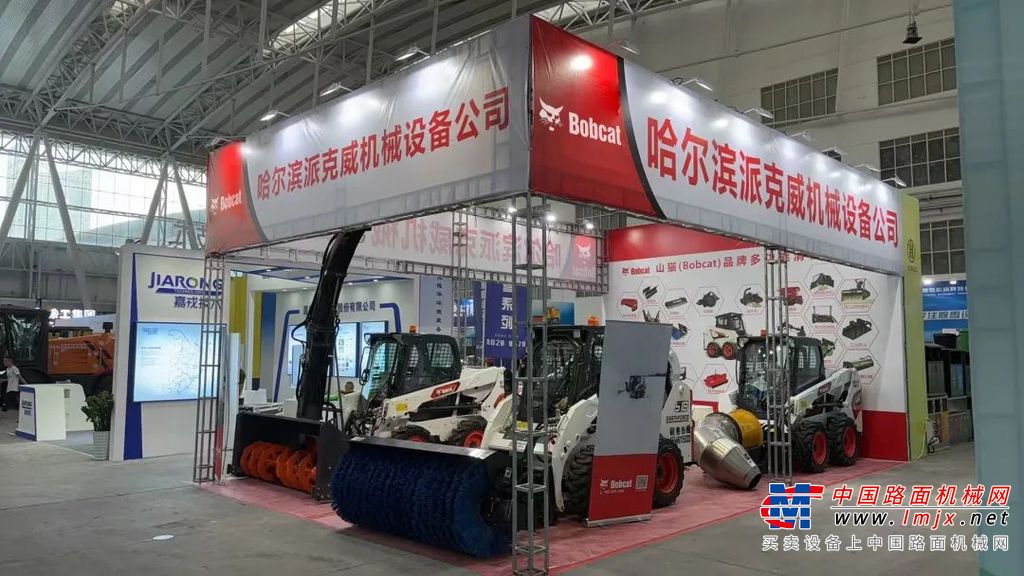 钢铁精灵:山猫热舞冰雪战场
钢铁精灵:山猫热舞冰雪战场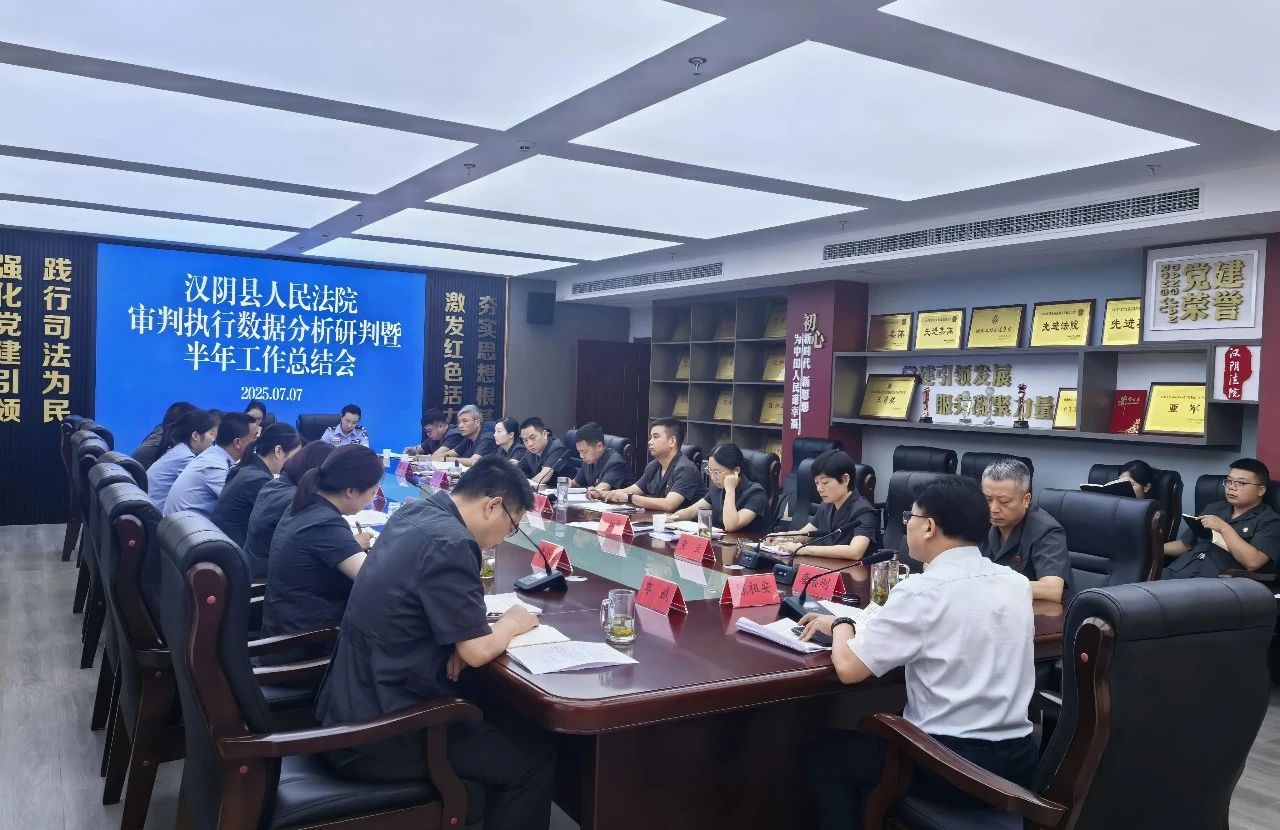 汉阴法院召开审判执行数据分析研判暨半年工作总结会
汉阴法院召开审判执行数据分析研判暨半年工作总结会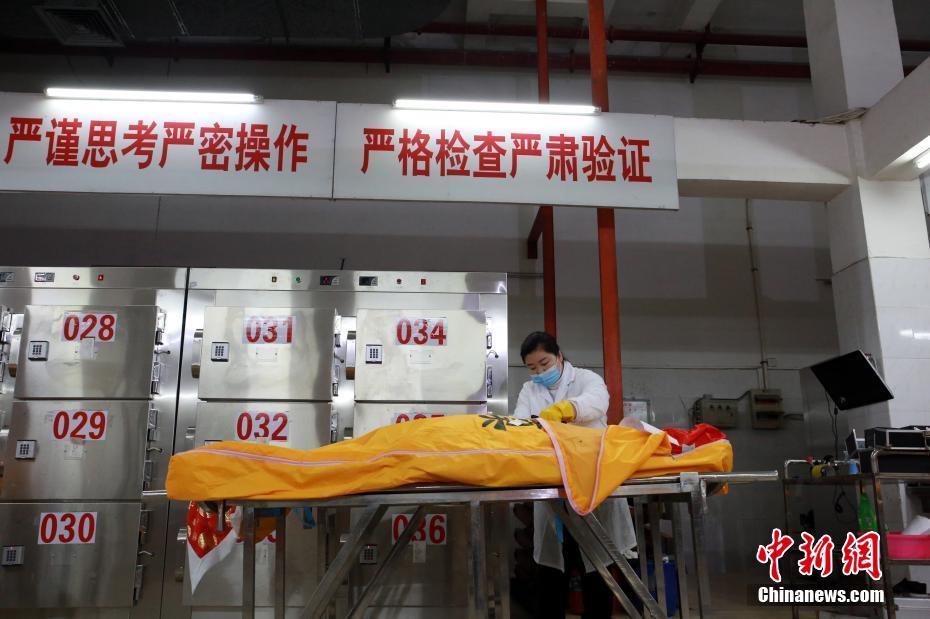 潜江油焖大虾亮相三亚非遗盛宴
潜江油焖大虾亮相三亚非遗盛宴 T2暗示《GTA6》不会再跳票 此前跳票是为了实现完美愿景
T2暗示《GTA6》不会再跳票 此前跳票是为了实现完美愿景